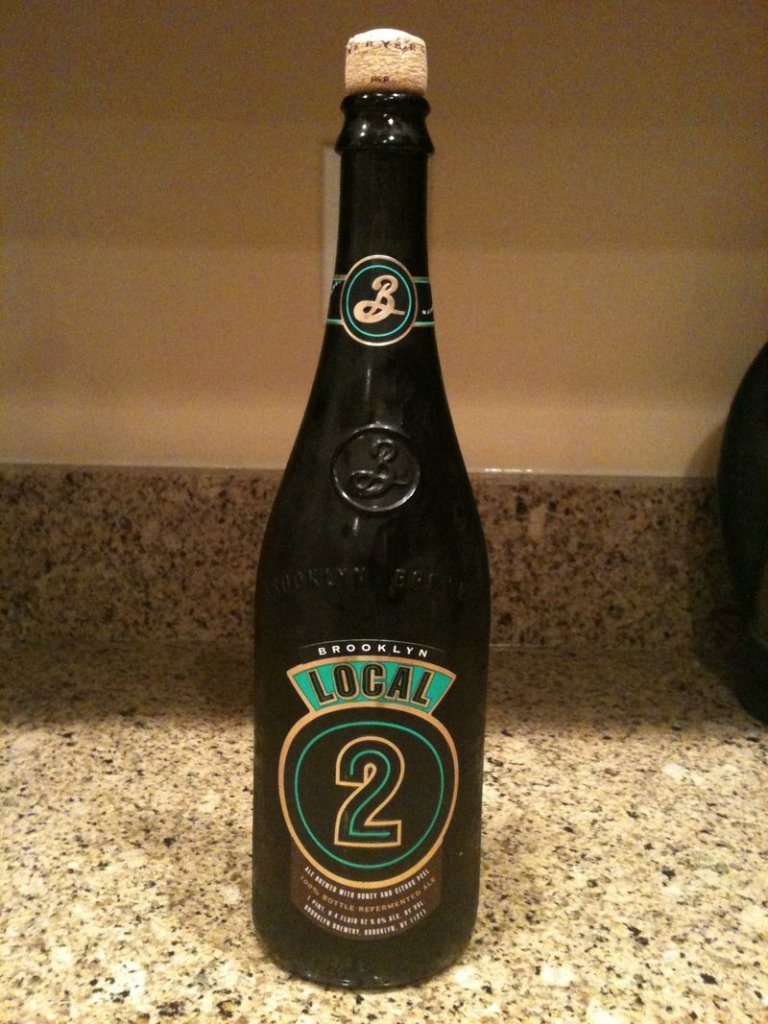I spent a morning in mid-December with Phil and Meghan Gaven at The Honey Exchange, 494 Stevens Ave., Portland, to discover the various ways that honey is used in beer. I was blown away by the selections.
The Honey Exchange is not primarily a beer store. Its major business is selling beekeeping supplies and doing honey extraction for amateur beekeepers. But on the other side of the store, the Gavens have a gift shop in which they sell – among many other things honey – mead, beer, wine and honey itself.
“We started out with just beer with honey as an ingredient, in the name or on the label,” Phil Gaven said, “but there weren’t enough beers.” So he ended up adding other beers that he liked from his previous career as a wine buyer for restaurants.
Over the past couple of weeks, I have mentioned some of the non-honey beers from The Honey Exchange. I have finally had a chance to finish the honey beers. Some of them are intense, so you can’t down them one after another.
The favorite honey beer among my tasters — and they varied over the past month from a crowd of seven to just me — was Brooklyn Local 2, a strong, dark Belgian ale with 9 percent alcohol that cost about $8.50 for a 750-milliliter bottle.
The honey was just a background in this fruity, spicy and complex beer with a wonderfully thick body. The Belgian dark candy sugar combines with the wildflower honey. Seven people tasted this one, and they all loved it.
Another favorite that only Nancy and I tasted was Midas Touch, a handcrafted ancient ale with 9 percent alcohol from Dogfish Head made with barley, honey, white Muscat grapes and saffron. It comes from a 2,000-year-old Turkish recipe, and is a wonderfully yellow color, perhaps from the saffron. It was slightly cloudy and had a rich, complex flavor that was not overpowering.
Blithering Idiot from Weyerbacher was so sweet that it was overpowering. The flavor was complex — and at 11.1 percent alcohol, big — but the sweetness overpowered everything else.
Fuller’s Organic Honey Dew Ale has a honey flavor without being overly sweet. It comes from England, is 5 percent alcohol, and has a nice clear color and carbonation. It costs $4.25 for a 16.9-ounce bottle, and is a beer you can just relax with.
We also tasted two braggots. A braggot is an ancient Celtic drink from at least the 12th century, and was mentioned in “The Canterbury Tales.” It is brewed with both honey and malt, so it is really a mixture of mead and beer.
Brother Adam’s Bragget Ale from Atlantic Brewing in Bar Harbor was 11.8 percent alcohol. I wanted to like this, because I like Atlantic Brewing, and the beer is named for a man who Gaven described as “sort of God for the beekeepers” — he developed a line of bees resistant to a parasite that had devastated bee colonies.
But the honey in this beer was so dominant and made a drink so sweet that even with a 22-ounce bottle divided among seven people, some of us had trouble finishing it.
We liked Old Danish Braggot from Dansk Mjot in Denmark better. It had ginger in the mix, was 10.1 percent alcohol and quite complex and sweet, but not sickeningly so. It came in a 750-milliliter bottle and cost $16.
The Honey Exchange sells Honey Brown, which is a beer you can buy practically anywhere, brewed by Dundee, a company on the borderline of craft and mass-market beers. Gaven described it as a “football-watching beer, not overly heavy or craft,” but it is an enjoyable drink.
The shop also sells Boddington’s English pub ale, which is a good English beer that does not have honey in it but does have a bee on the can.
Tom Atwell is a Cape Elizabeth freelance writer. He can be contacted at 767-2297 or:
tomatwell@me.com
Send questions/comments to the editors.



Success. Please wait for the page to reload. If the page does not reload within 5 seconds, please refresh the page.
Enter your email and password to access comments.
Hi, to comment on stories you must . This profile is in addition to your subscription and website login.
Already have a commenting profile? .
Invalid username/password.
Please check your email to confirm and complete your registration.
Only subscribers are eligible to post comments. Please subscribe or login first for digital access. Here’s why.
Use the form below to reset your password. When you've submitted your account email, we will send an email with a reset code.